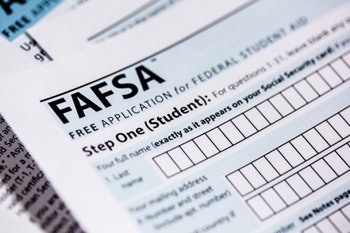Sydney Smith is a senior at Covenant College, a small, Christian college in Georgia, where she is majoring in psychology with a minor in history. She says that it is the right place for her, but without a high school advisor who helped her sort out the FAFSA form, she might not be there today.
“[Covenant] is private, it costs a lot to go there, and without my advisor, I might not have known which scholarships to apply for and which forms to fill out,” Smith said at a briefing Tuesday on the FAFSA at the Senate Office House in Washington, D.C. The event was organized by the National College Access Network (NCAN), a D.C.-based nonprofit that works on issues of college access.

Since its creation, the FAFSA has moved online, which has helped simplify the process somewhat, since applicants and their families can now import data from the IRS, provided that they filed taxes the previous year. Despite improvements, the form still has numerous critics, including members of Congress. Tennessee Sen. Lamar Alexander, who chairs the Senate committee on education, is known in education circles for his dogged efforts to reduce the form to a few simple questions.
Speaking at the NCAN hearing on Tuesday morning, Carrie Warick, director of policy and advocacy at NCAN, argued that simplifying the FAFSA would make higher education more broadly accessible and give students better information about whether college is financially feasible for them. If they do not fill out the form, students do not have access to key federal aid programs, such as Pell Grants, which go to low-income students. The Pell program disbursed approximately $28.2 million in aid to 7.6 million students in 2015-16.
To assess how a more user friendly version of the FAFSA might impact students, NCAN developed a new model, which it calls the Streamlined FAFSA, to compare against the existing form. The Streamlined FAFSA trims down the existing form, eliminating questions that NCAN deemed to be redundant, and guiding users down three potential pathways dependent on their families’ financial backgrounds.
“[We want] to stop asking low-income students to prove over and over again that they are low income,” Warick said.















